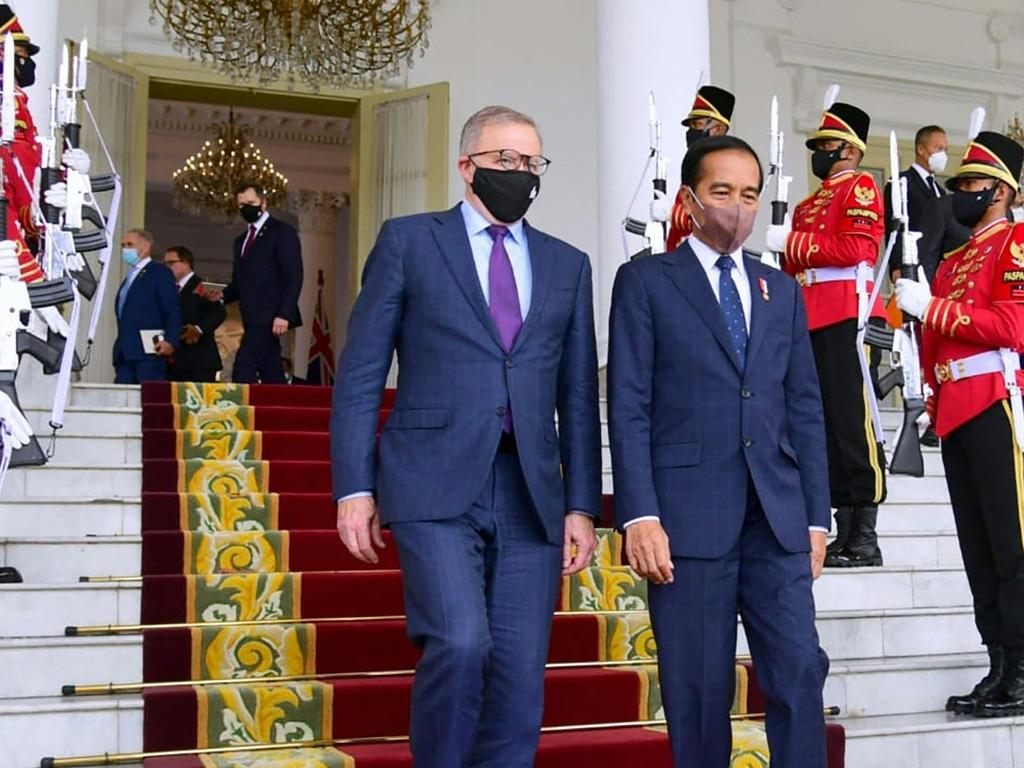Australia warned to counter Chinese tech influence in Indonesia
Australia is facing another security threat on its doorstep as China increases its presence in the Indo-Pacific.
Australia and its allies should provide intensive tech training to Indonesia to counter China’s influence in the region, experts say.
A new report from the Australian National University’s National Security College says Chinese firms have become Indonesia’s go-to for cybersecurity.
According to the report, China is now providing both large amounts of hardware and training at all levels of society – from government officials down to rural students.
“The programs are huge and are being provided by major companies such as Huawei,” report co-author Dr Dirk van der Kley said.
“Huawei alone is potentially training tens of thousands of Indonesians every year. This is steering Indonesia’s current and future tech leaders towards Chinese technology.”

One of the major sticking points in Australia’s relationship with China was the refusal to allow Huawei to roll out Australia’s 5G network over security concerns.
Dr van der Kley said while Indonesia holds “deep animosity” towards China there has been little pushback to the country taking a dominant position in the telecommunications and cyber realm.
“This is because rich liberal democracies are not delivering the kind of benefits that Indonesia needs or wants,” Dr van der Kley said.
The report calls for Quad countries – Australia, India, Japan and the United States – to do more to provide technology training to Indonesia.
“Australia, in concert with other Quad countries, should deliver a vocational technology training program that is large enough to genuinely improve Indonesia’s technology capacity and offer alternatives to Chinese state-backed technology and training,” co-author Dr Benjamin Herscovitch said.

“The first step for the new Australian government – and hopefully the Quad – is to provide Indonesia with large scale, short-term technical training. This is what they want. We are currently ceding that ground to China,” Dr Herscovitch said.
“Large tech firms from Quad countries should contribute their technology and expertise to an internationally accredited vocational program. Australia’s vocational education and training sector should also help develop people-to-people and educational links with Indonesia.”
Co-author Dr Gatra Priyandita, from the Australian Strategic Policy Institute, said Australian technology training could help Indonesia tackle the major issue of cybercrime.
“The most urgent cybersecurity threat for the Indonesian government is cybercrime. Indonesia is one of the most vulnerable countries to cybercrime on Earth,“ Dr Priyandita said.
“Regardless of China’s active ICT agenda in the region, serious short-term vocational training in Indonesia is the right thing to do.
“So, Australia, and the Quad countries, should do it regardless of their goal of counteracting China’s influence. Partnering on digital skills and capacity building in Indonesia would be a win-win for all.”



